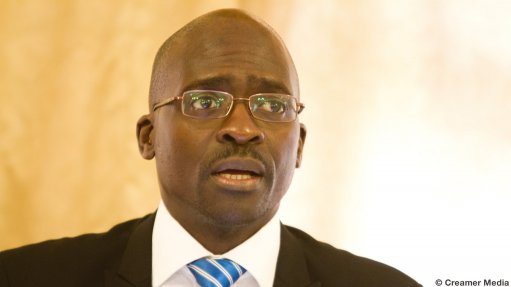
Public Enterprises Minister Malusi Gigaba
Photo by: Duane Daws
Lack of infrastructure is negatively affecting Africa's international trade, Public Enterprises Minister Malusi Gigaba said on Tuesday.
"The world is eager to do business with Africa, but finds it difficult to access African markets, especially in the interior, due to poor infrastructure," he said at the convention of the association of municipal electricity utilities in East London, Eastern Cape.
"Greater economic activity, enhanced efficiency and increased competitiveness are hampered by inadequate transport, communication, water and power infrastructure."
He said while inadequate infrastructure could be the biggest threat to Africa's long-term growth, it also represented a significant opportunity for investors.
"With governments across the continent committing billions of dollars to infrastructure, Africa is at the start of a 20 to 30-year infrastructure development boom," Gigaba said.
The development and modernisation of infrastructure remained critical to South Africa's future economic competitiveness, facilitating domestic, regional and international trade, and enhancing South Africa's integration into the regional and global economy.
He said critics of the national development plan (NDP), which listed infrastructure as one of its priorities, still saw its potential.
"Some of the critics of the NDP have not outrightly rejected the plan, but highlighted issues which require further engagement and debate, with a view to improving them as we march forward with its implementation," he said.
"The plan itself is not sacrosanct or cast in stone, but is a living document."
Gigaba said development and improvement was on ongoing process.
"Among the critical lessons for infrastructure roll-out in Africa include that we must never stop planning for future infrastructure capacity, and having gained the momentum, the infrastructure development programme must not stop; and that we must service and maintain our infrastructure so that we do not neglect it for future generations to have to maintain, service and even replace it at exorbitant cost," he said.